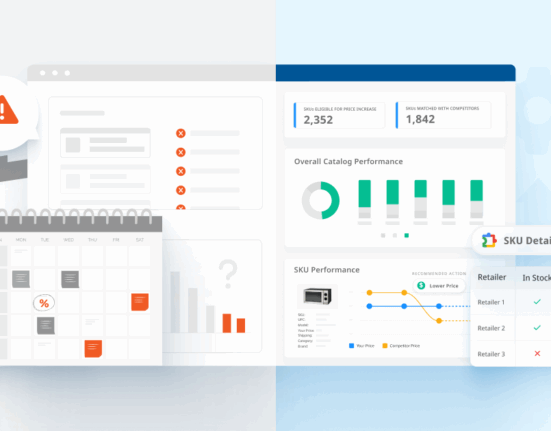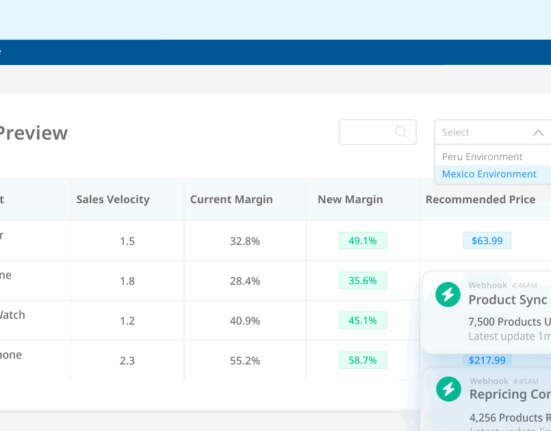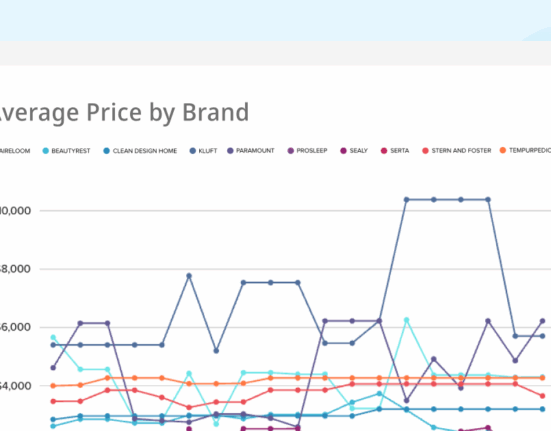Leveraging the potential of store associates to become product advocates opens up a new dimension for retailers to connect with their customers organically. Associates, well-versed with the store’s offerings and ethos, can truly embody the brand and foster a genuine connection with the customers.
Training and incentives can encourage associates to adopt this role of brand ambassadors. A well-informed associate can offer personalized advice, contribute to a pleasant shopping experience, and influence purchasing decisions. Their direct communication with customers offers an authentic, human touch often lacking in online interactions.
However, the journey toward effective employee advocacy demands a thoughtful strategy. It entails consistent communication of the company’s values and mission to the associates, nurturing a positive work environment that evokes enthusiasm for the store, and recognizing their efforts in promoting the brand. When implemented strategically, employee advocacy can be a game-changer in the retail industry.

The Concept of Employee Advocacy
Employee advocacy refers to the act of employees actively promoting and advocating for their company and its products or services. It is built on the premise that employees, being the internal stakeholders, have a deep understanding of the company’s offerings and can, therefore, act as credible and trustworthy spokespeople. This internal advocacy can take various forms, from sharing company-branded content on social media to word-of-mouth recommendations, or even wearing company-branded attire.
The importance of building employee advocacy within the retail sector cannot be overstated. Retail employees interact directly with customers, making them the face of a brand. Their opinions and recommendations can significantly influence customers’ purchasing decisions. Additionally, since these employees are intimately familiar with the company’s products, they can provide authentic and valuable insights, helping to build customer trust and loyalty.
The Potential Benefits of Employee Advocacy
Employee advocacy can serve as a powerful tool in enhancing a company’s reputation, visibility, and credibility. When employees share positive experiences and insights about their workplace on social media, they essentially become ambassadors for their brand. This not only humanizes the company but also instills trust and loyalty among potential customers and future employees.
In addition, employee advocacy can significantly expand the company’s reach. As employees share content across their personal networks, the company gains access to a wider audience. This can lead to increased brand awareness, higher engagement, and potentially more leads and conversions. Moreover, employee voices are often perceived as more authentic and reliable compared to corporate communications, further amplifying the impact of their advocacy.
The Role of Store Associates in Advocacy
Store associates can serve as effective employee advocates by embodying the brand’s values, delivering exceptional customer service, and forming meaningful relationships with customers. Their firsthand knowledge of the products and their direct interaction with customers positions them uniquely to build trust, provide personalized recommendations, and enhance customer loyalty.
Apple
An example of successful store associate advocacy can be seen in Apple Stores. Employees are not only knowledgeable about the products, but they also share the brand’s passion for innovation, offering customers a unique and personalized shopping experience. This dedication to the brand and its values turns these associates into true advocates, influencing customer perceptions and driving brand loyalty.
Nordstrom
Similarly, luxury fashion retailer Nordstrom has built its reputation on exceptional customer service, delivered by associates who are deeply knowledgeable about the brand’s offerings. These associates are trained to offer personalized styling advice, creating a shopping experience that feels exclusive and premium. Through their interactions with customers, these associates become genuine ambassadors of the Nordstrom brand, reinforcing its reputation for personal service and quality.
In both these examples, it’s clear that when store associates transition from being just employees to being brand advocates, they can deliver remarkable results. They become a key component of the overall marketing strategy, influencing customer behavior and driving brand loyalty. This is the power of the right employee advocacy platform.

Types of Employee Advocacy
Employee advocacy can take on many shapes and forms, each with its unique benefits and methods of implementation. Here are several examples:
- Company Swag and Merch: Branded merchandise can be a powerful tool for employee advocacy. Employees often feel a sense of pride and camaraderie when wearing or using items that represent their company, whether it’s clothing, bottles, notebooks, or tech gadgets.
- Internal Incentives: Offering incentives like bonuses, promotions, or special recognition can motivate employees to be more vocal advocates for their company. These rewards can inspire a sense of ownership and investment in the company’s success.
- Social Media Advocacy: Encouraging employees to share company news, events, and achievements on their personal social media can organically boost visibility and credibility. This is also a great method to attract potential customers or employees.
- Employee Testimonials: Authentic testimonials from employees about their experiences can serve as powerful advocacy tools. These can be shared on the company’s website, social media, or recruitment platforms.
- Participation in Industry Events: Employees representing the company at industry events or conferences can boost the company’s profile and reach. This also provides opportunities for networking and knowledge sharing.
- Training and Development: Investing in employees’ skills and growth can make them feel appreciated and more likely to advocate for the company. This can be through offering further education, training, or workshops.
Remember, effective employee advocacy is about creating an environment where employees feel valued and proud to be a part of the company. This will naturally lead them to become strong ambassadors for your brand.
Strategies for Transforming Associates into Advocates
Retail associates often stand on the frontlines of customer interaction, so the power they wield in shaping customer perception and influencing buying decisions cannot be underestimated. This is where employee advocacy comes in.
By harnessing their potential, organizations can cultivate a workforce that is not only invested in their roles but also actively contributes to company growth. This transformation requires a thoughtful approach, rooted in effective communication, recognition, and training strategies.
No. 1: Educate Your Team
To ensure your employees have a comprehensive understanding of your products or services, it is crucial that they possess in-depth knowledge of not only the features and benefits, but also the unique selling points that set your offerings apart from the competition. Equipping your team with this level of knowledge empowers them to become advocates for your brand, as they can confidently articulate the value and advantages of your products or services to customers and stakeholders. By prioritizing knowledge as the first step, you lay a solid foundation for building a strong and informed workforce that can positively contribute to the success of your business.

No. 2: Share the Company Vision
It is crucial to ensure that your associates not only understand but also deeply connect with the mission and values of the company. By fostering this sense of shared purpose and alignment, they will be more motivated and driven to passionately advocate for the products, becoming true ambassadors of the brand. This strong connection to the company’s mission will not only enhance their commitment but also inspire them to go above and beyond in their efforts to achieve the organization’s goals.
No. 3: Foster a Positive Workplace Environment
A positive and supportive workplace environment plays a crucial role in creating employee advocates. When employees feel genuinely valued, respected, and heard, they not only become champions of their workplace but also enthusiastic promoters of its products and services. This sense of appreciation fosters a deep sense of loyalty and commitment, leading to increased employee engagement and overall organizational success.
No. 4: Provide Training and Development Opportunities
Regular and consistent training sessions play a crucial role in enhancing employees’ product knowledge and confidence in effectively representing those products. By providing comprehensive and in-depth training, organizations empower their employees with the necessary skills and expertise to articulate the unique features and benefits of the products they represent. This not only instills confidence in employees but also ensures that they can effectively communicate the value proposition to customers, leading to increased customer satisfaction and business success.
No. 5: Encourage Employee Participation
To create a stronger sense of ownership and foster natural advocacy, it is highly beneficial to involve employees in product launches and brand events. By actively engaging them in these activities, employees gain a deeper understanding of the brand’s vision and purpose, allowing them to become true advocates. This not only strengthens their connection to the organization but also enhances their ability to authentically promote and represent the brand to customers and stakeholders.
Employee advocacy can foster a sense of community and enhance employee engagement, as employees who feel valued and involved are more likely to advocate for their company.
No. 6: Implement Employee Advocacy Programs
Implementing a comprehensive employee advocacy program can effectively incentivize and recognize employees for their valuable advocacy efforts. This can encompass a range of activities such as sharing on various social media channels and platforms, promoting through word-of-mouth, or actively engaging in public events. By providing a platform for employees to showcase their support and dedication, organizations can foster a culture of advocacy and strengthen their brand presence in the community
No. 7: Open Channels of Communication
Regular feedback and open dialogue play a vital role in fostering a positive work environment. By actively addressing any issues or concerns employees may have, it creates a sense of inclusivity and trust within the company culture. This, in turn, leads to a stronger connection and commitment from employees, as they feel valued and supported in their professional development.
No. 8: Recognize and Reward Efforts
It is important to acknowledge and appreciate the efforts of those who actively advocate for your products. By recognizing their contributions, not only do you motivate and inspire the individual, but you also create a positive environment that encourages others to join in. This recognition serves as a powerful tool to foster loyalty, build strong relationships, and ultimately drive the success of your brand.
Remember, transforming store associates into product advocates is not an overnight process. It requires consistent effort and a strategic approach that fosters an environment of trust, respect, and open communication.
Measuring the Impact of Associate Advocacy
A key metric to assess the impact of employee advocacy is the improvement in brand reach. Employees can extend the company’s social media reach by sharing positive experiences and brand messages through social media posts within their personal networks. This organic reach not only enhances the visibility of the brand but also adds a layer of authenticity to the brand message.
Another critical indicator is customer engagement. If customers are interacting more with your brand because of employee advocacy, there will be a noticeable increase in likes, shares, comments, and other forms of engagement on your social media platforms. This heightened engagement often translates into improved customer satisfaction and loyalty.
Finally, measuring the impact of your employee advocacy on sales is crucial. Increased brand reach and customer engagement often culminate in boosted sales. But it’s also essential to track the number of referrals made by employees and how many of these translate into sales. With the right tracking tools in place, retailers can link employee advocacy initiatives directly to increased revenue, providing a measurable return on investment.

How Wiser Can Help Measure the Success of Your Employee Advocacy
Wiser Solutions’ Retail Intelligence product serves as an invaluable tool in measuring employee advocacy. Through a sophisticated blend of real-time data analytics and observational insights, it provides businesses with a thorough understanding of how employees are promoting and recommending products to customers.
By examining factors such as the frequency and quality of product recommendations given by employees, businesses can gain a clear picture of their team’s commitment to the brand. Additionally, it offers businesses vital insight into how effectively their training programs are translating into real-world performance. Armed with this knowledge, they can continually refine and enhance their approach to drive further business success.
Harnessing the Power of Employee Advocacy
Employee advocacy represents a significant untapped resource for many organizations. The power of personal networks and the authentic voice of employees can go a long way in building a credible and relatable brand image.
Optimizing the potential of employee advocacy demands a strategic and structured approach. It involves creating a culture of openness and inclusivity where employees feel valued and empowered to share their experiences.
Training and guidelines for employee advocacy platforms are crucial components of a successful employee advocacy program. Employees need to clearly understand the what, why, and how of sharing brand messages. Clear guidelines help avoid any potential miscommunication, ensuring that brand messages are consistent and aligned with the organization’s values and objectives.
Ultimately, harnessing the power of employee advocacy can contribute significantly to an organization’s success. It is a testament to the power of organic, people-centric marketing that resonates with the audience and fosters stronger connections. The future of marketing lies in retailers that understand and utilize the compelling voice of their employees.









